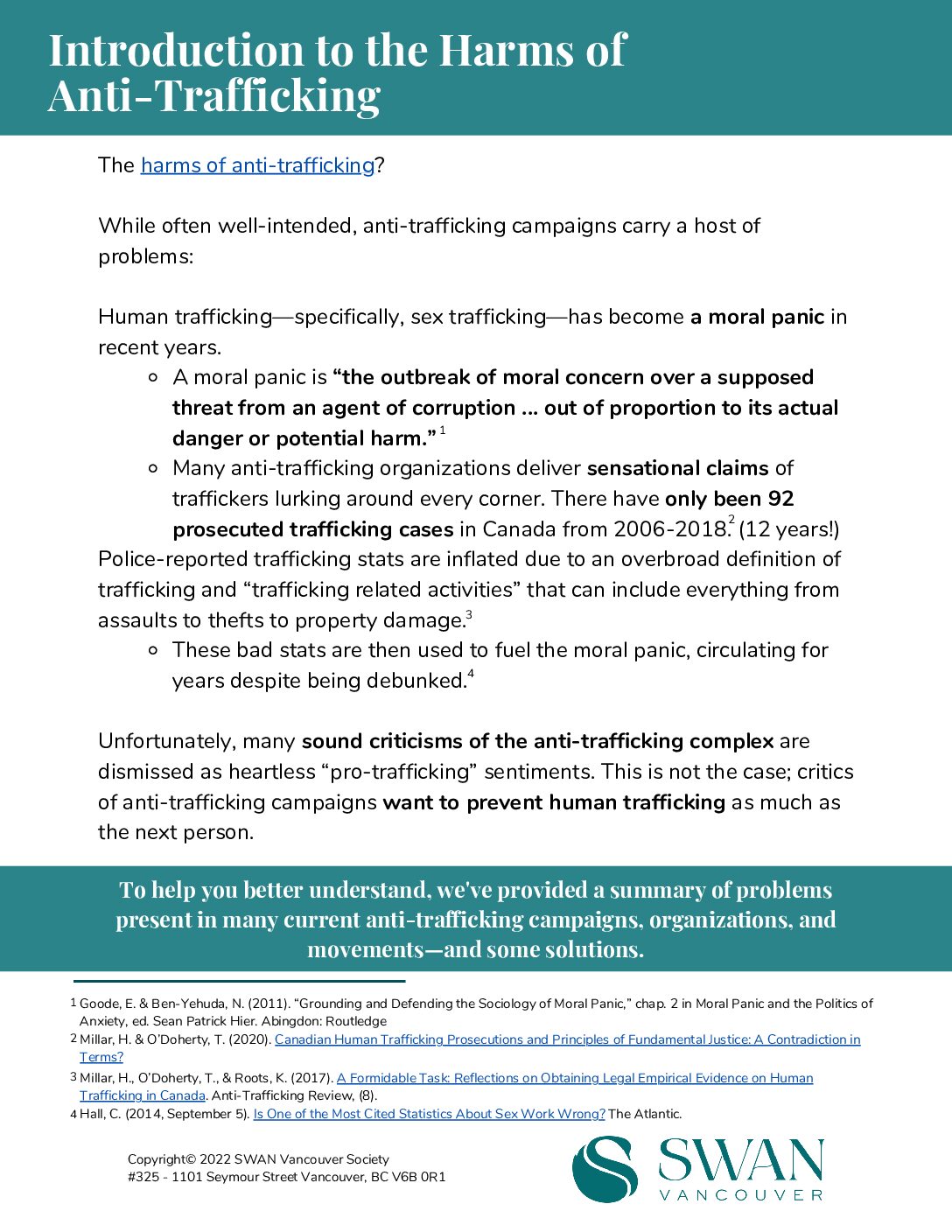How can an anti-trafficking campaign cause harm?
While often well-intended, anti-trafficking campaigns carry a host of problems:
- They contribute to an unfounded moral panic in society
- They utilize sensational narratives and inflated, debunked statistics
- They contribute to poorly informed policy decisions that put sex workers in danger
Unfortunately, many sound criticisms of the anti-trafficking complex are dismissed as heartless “pro-trafficking” sentiments. This is not the case; critics of anti-trafficking campaigns want to prevent human trafficking as much as the next person. To better understand the issue, explore our summary of the problems present in many current anti-trafficking campaigns, organizations and movements:
How do anti-trafficking campaigns cause harm?
CONFLATION
Sex work is the exchange of sexual services for money or goods, between consenting adults. Human trafficking is the recruitment, transportation, transfer, harbouring or receipt of persons, by means of the threat or use of force or other forms of coercion, of abduction, of fraud, of deception, of the abuse of power or of a position of vulnerability for the purpose of exploitation.¹ Too many anti-trafficking campaigns conflate sex work with trafficking. This results in efforts to end sex work as a way to end trafficking. SWAN knows from working with women engaged in sex work that this approach is misguided, infantilizing and dangerous. Conflating sex work and human trafficking leads to social stigma and bad policy decisions that hurt sex workers AND do not help actual trafficking victims.
HOT TOPIC
Some groups may take advantage of anti-trafficking efforts to further their own agendas:
- Opponents to immigration – using human trafficking as an argument for stricter immigration control
- Faith-based groups & abolitionists – condemning sex work on moral grounds and/or as exploitation (conflating sex work and trafficking)
- Politicians – running on an anti-trafficking election platform
- Non-profit organizations – rebranding as anti-trafficking experts in order to secure funding
STEREOTYPES
ROOT CAUSES
IM/MIGRANT SEX WORKERS
Our current laws result in many aspects of sex work remaining illegal, creating multi-layered criminalization that forces im/migrant and non-im/migrant sex workers alike to operate underground. This increases the risk of poor working conditions, violence, and lack of access to health care and other resources.
Im/migrant sex workers face all the same barriers that other sex workers do in Canada and are even further disadvantaged by the immigration prohibition of sex work: While selling sex in Canada is (theoretically) decriminalized, this does not apply to those without PR or citizenship. Therefore, any violence or exploitation faced by an im/migrant sex worker is likely to go unreported in order to avoid potential deportation.
for the full list of resources
1 Slightly adapted version of the Palermo Protocol definition of human trafficking. There are several varied definitions of human trafficking in use, further complicating the ability to effectively and uniformly address this issue.

